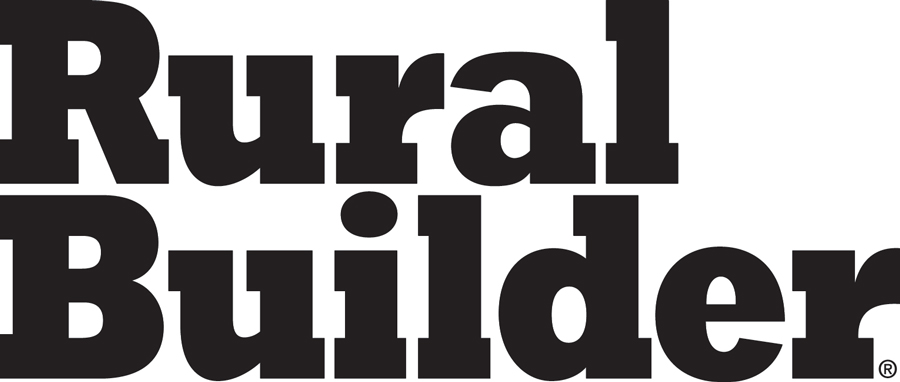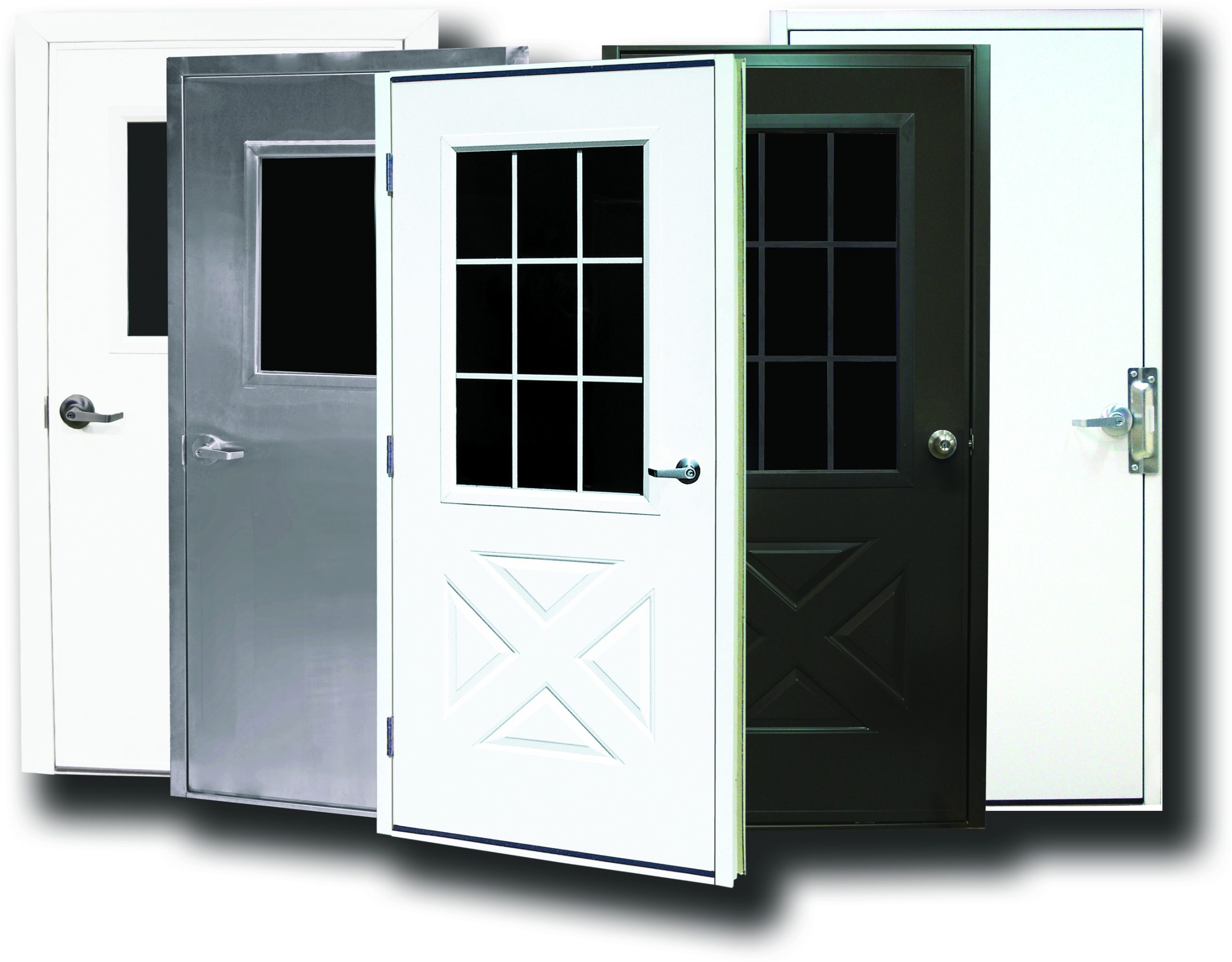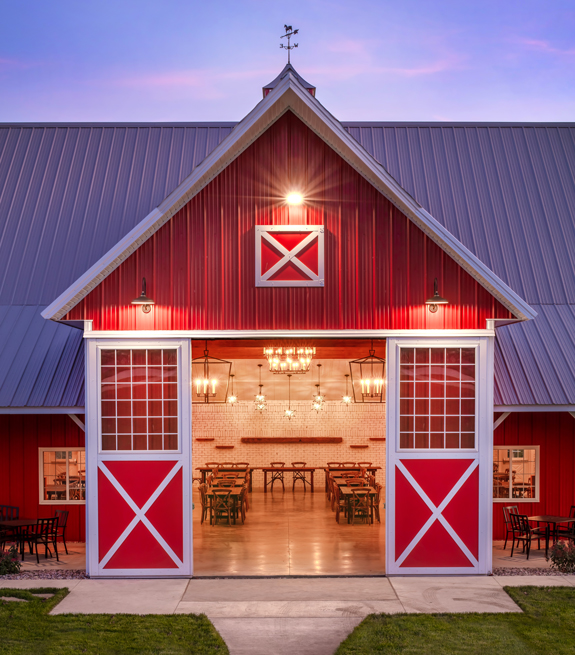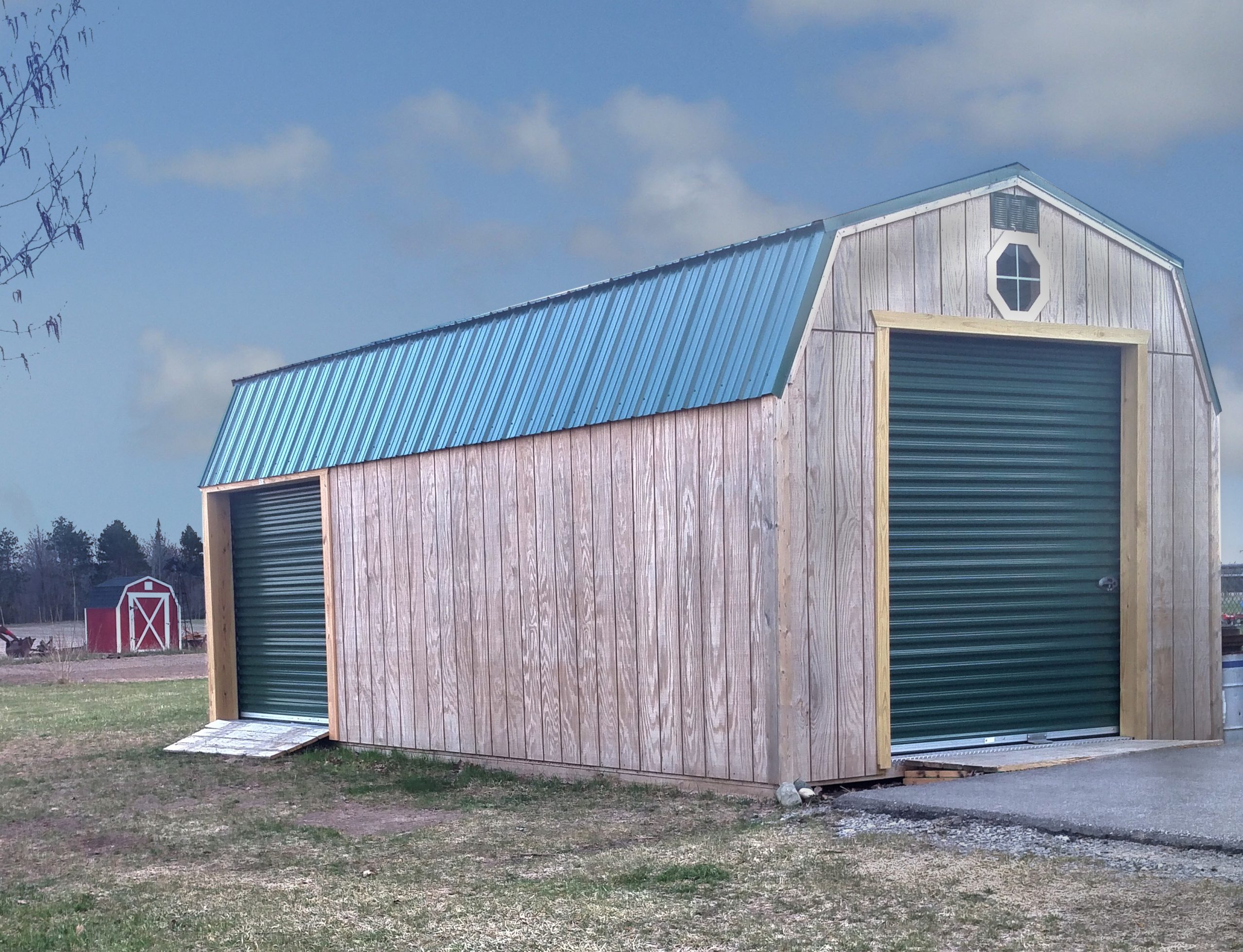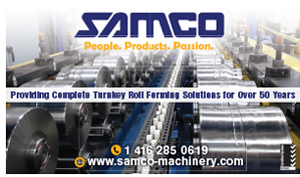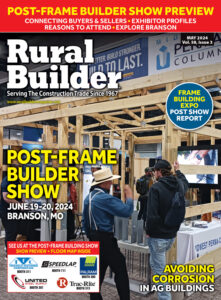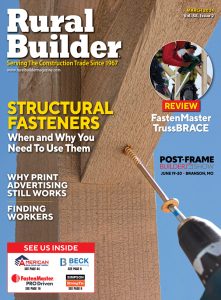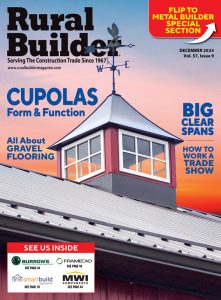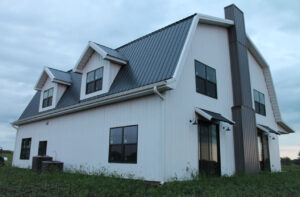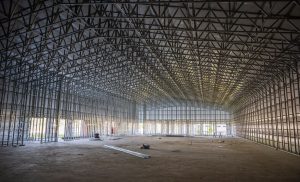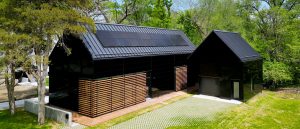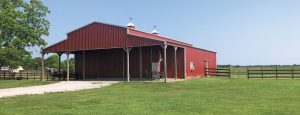For post-frame construction projects, walk doors are typically not required to meet any standards unless the project notes a certain specification or design requirement. However, if the project is used for commercial purposes, the Steel Door Institute (SDI), using ASTM and ANSI, sets the criteria or parameters of the testing and results required, but it doesn’t provide a recommendation for the actual door selection based on other factors that might be critical to your customer. Either way and in both cases, the builder needs to go through a review process to determine the “best fit” for each project.
Which Door Fits Your Project?
For many post-frame construction projects, the first consideration when selecting doors is the function of the building: What will the finished project be used for and what will be the demands of the door? Take into consideration … will the door be a main entry, heavy-traffic door in an office building or will it be used in an agricultural facility? The answers help determine the best choice for the door.
Environmental Properties
A first and very simple step is determining how corrosive the environment will be and ensuring the steel material used in the door and frame are galvanized or galvannealed, to an A40/G40 coating as a minimum requirement, or if stainless steel or fiberglass are a better choice.
For instance, in a commercial building application in high traffic areas, heat conduction is an important consideration. There are various tests for determining the thermal properties of the door core only and a more recent and accurate test of the overall door/frame/hardware assembly. With both, the test agencies provide how the tests are to be conducted and reported, but doesn’t say what R-value you need or should want to attain – that decision is left to the decision maker outside of the testing scope.
Part of that selection process includes a review of the performance and testing by the manufacturer on its door products. Knowledge of the door testing performance will ensure the best product fit, while helping determine which door will stand up in the environment and perform flawlessly.
For example, a typical polystyrene core may have an R-value of approximately 6, while a polyurethane core will fall around 11 (ASTM-C1363). In a similar way the door opening test results (ASTM-C1199/NFRC-100) can vary widely depending on the door core used, the weatherseal and interaction with the frame, plus the sweep and threshold seal.
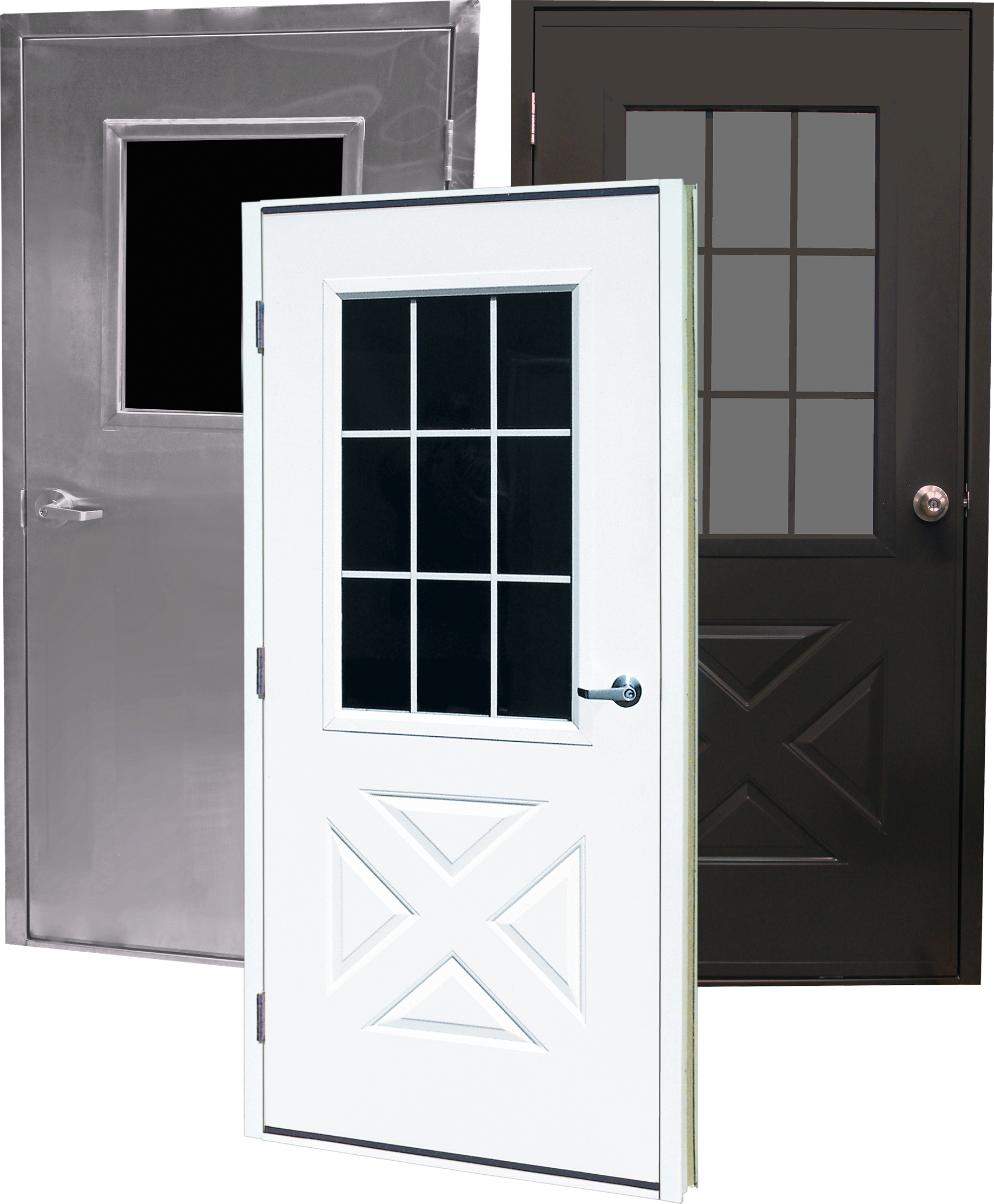
So how important are the thermal properties of the door to the overall project? There is always a potential for the question of how much does each step along the way cost, to attain higher thermal values; so, work with your provider to determine your needs and seek out the best solution for your project.
Heavy traffic areas and agricultural use doors will require more durability. While it’s easy to assume a heavier gauge door is better, it might be additionally beneficial to use various performance testing results as the basis for your door selection. Quality doors will not only meet the required standards, but exceed those standards during testing. Because of door construction differences it’s very possible that a lighter-gauge door can have the same or even higher test results than the heavier gauge door — at least in some areas the customer may deem important. Some of the more common testing standards are as follows:
• Air Infiltration: ASTM-E283
• Water penetration: ASTM-E331
• Physical Endurance: AAMA 920, ANSI A250.4
• Thermal Performance: NFRC 100, ASTM-C1199,
ASTM-C518
• Wind Storm Resistance/Structural: ASTM-E330,
ANSI A250.13
Coated For The Weather
Another critical factor in the decision process could be the paint and whether the doors come pre-painted from the supplier or if they will need to be field painted. Sometimes definitions can get confusing and different industries use different terminology. Typically, doors that come from a contract hardware distributor will arrive in gray primer only and need to be field painted. Doors that come from a manufacturer or supplier with a focus on the metal building industry may have pre-painted products, typically white and bronze colors at a minimum and some can provide special colors.
This is a “better” paint process as it has been applied in a controlled factory environment and doors are typically run through an oven so the paint is considered “baked on.” A big question can be trying to determine whether or not the paint is a “colored primer” or a “finish coat.” SDI and AAMA, among others, have developed standards whereby tests are performed for salt spray, condensation, impact, film adhesion and abrasion. Of course, the customer is generally just going to want to know the paint life expectation as well as weathering capabilities, so AAMA also has testing to determine color retention, erosion resistance and chalking resistance.
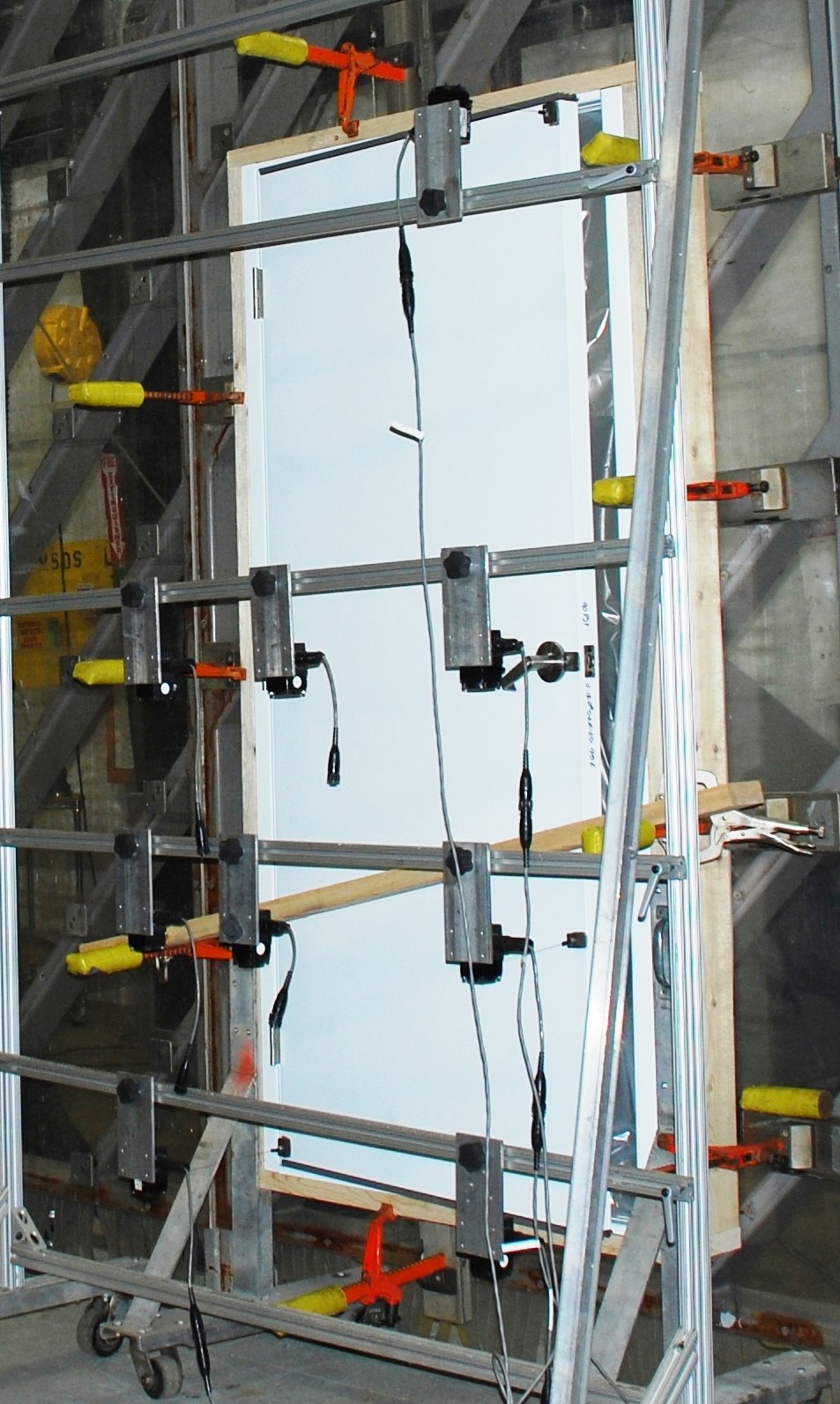
To add another layer, some doors may be manufactured from pre-painted steel coils which have additional features and have high-performance standards that differ from a wet paint process.
Performance Tested
Finally, as one could assume based on the desire to meet and exceed performance standard, it is important for doors, frames and other hardware components to be individually (and as an assembled unit) tested by a third-party agency. This can be verified by third-party testing results as well as labels or registrations — like the Florida Building Code requirements.
If you’ve got a door that meets or exceeds standards, you’ve got a winner. The number of tests available makes it difficult to comprehend all that is required and available. Ask questions of your supplier and learn what’s best for your customers. RB
For more than 60 years, Plyco Corporation has been a leading supplier of products to the post-frame, metal building and commercial construction industries. Plyco manufactures and/or distributes a wide variety of products including metal doors, windows, horse stall systems, ventilation products, reflective insulation, fasteners and closures. To learn more, call 800-558-5895 or visit www.plyco.com.

